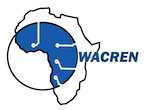
Empowering women in Western Africa
More than 2,000 young women in Western Africa have received a jump-start for pursuing a career in science, technology, engineering and math (STEM) by joining courses and workshops provided by the regional research and education network WACREN.
The program, known as Women-in-WACREN, was initiated in 2018. The regional network launched a five-day workshop offering knowledge and experience on basic programming (Python), application of Git and DevOps and introduction to embedded systems (Raspberry Pi) and sensors.
Since then, the program has evolved further. One key activity is an online course “Physical Computing with Python”. The course introduces participants to fundamentals of sensor interaction with the physical world and programming.
Next step: in-person hackathon
The online course was created in collaboration with Eko-Konnect, the national research and education network (NREN) of Nigeria, and volunteers from the University Cape Coast in Ghana. The course runs for 10 weeks annually and is free of charge. Participants are introduced to Linux Command Line Interface, Python Programming, DevOps Lifecycle and Git and Embedded Systems, Sensors, and other common electronic components. Successful online participants are invited to partake in in-person hackathons where they apply knowledge gained in building prototypes of real-life smart devices and overall acquire coding, problem-solving and hardware skills. Over 300 women have participated in these hackathons.
The recent hackathon, hosted by Eko-Konnect and held at the Covenant University in Nigeria, invited participants to build interactive real-life prototype physical computing projects using low-cost sensors and embedded devices.
Weather station as a challenge
One challenge at the hackathon involved construction of a data-logging IoT (Internet-of-Things) weather station. The prototype was deployed on the premises of some institutions to create an NREN weather map, where weather data collected across different locations can be stored, analysed and visualised on a single IoT platform.
“Amazing experience (…) We set up a weather station. Despite the challenges, we configured the raspberry pi, got the wind speed of our anemometer working,” says Eletta Adeola, a Nigerian participant and co-innovator of the weather station.
WACREN is planning activities to attract even wider participation across Africa, possibly in several languages.
For more information please contact our contributor(s):


